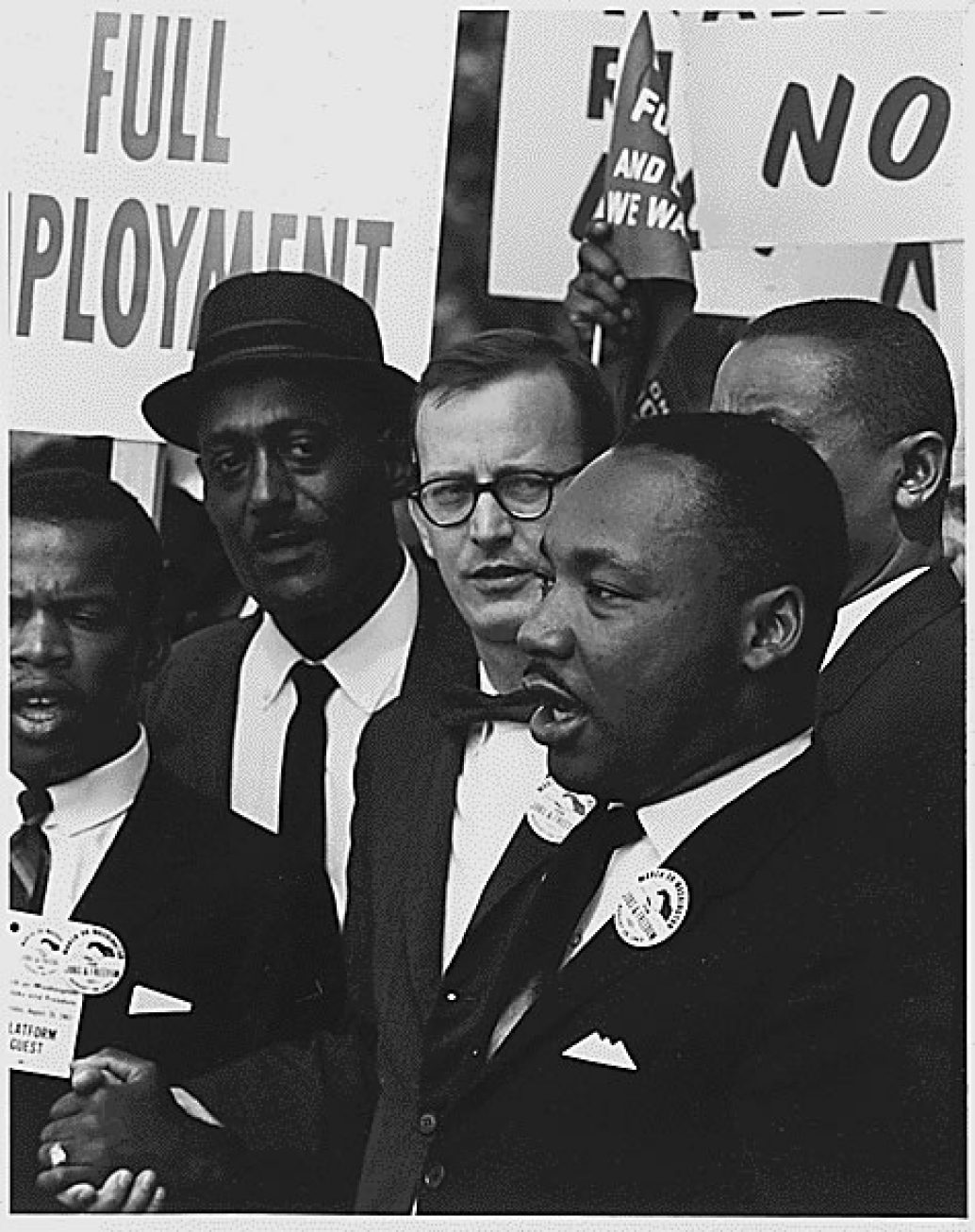Noticias
The Legacy of Martin Luther King, Jr., the Poor People’s Campaign and the Census
The Legacy of Martin Luther King, Jr., the Poor People’s Campaign and the Census
January 20, 2020 – In the months leading up to his assassination, Martin Luther King, Jr. was busy organizing the Poor People’s Campaign. He understood that civil rights were critical, but insufficient on their own, to ensure the equality he dreamed of and gave his life for. Building true, equitable community would require even more significant policy change — change that would not come without meaningful action — action by the thousands of people who experience hunger and poverty in our country.
Dr. King looked across America and saw people and families of all races, cultures and communities who were hungry, houseless, unemployed and underpaid. He began to organize a multi-racial movement of people to dismantle the systems of inequality that created conditions of poverty for so many communities.
In his last Sunday sermon, Dr. King spoke about this Poor People’s Campaign and the power of bringing shared concerns directly to our leaders in Washington, DC:
“We are coming to demand that the government address itself to the problem of poverty. We read one day: We hold these truths to be self-evident, that all men are created equal, that they are endowed by their creator with certain inalienable rights. That among these are life, liberty, and the pursuit of happiness. But if a man doesn’t have a job or an income, he has neither life, nor liberty, nor the possibility for the pursuit of happiness. He merely exists … We are coming to ask America to be true to the huge promissory note signed years ago.”
Dr. King was killed before the Poor People’s campaign could realize its full potential. Even so, the campaign brought about an expansion of school meals and Head Start programs for children in the south, pushed the United States Department of Agriculture to release surplus food commodities to the country’s poorest counties, expanded the food stamp program and made public assistance systems easier to navigate. And the ideals of the Poor People’s Campaign have served as a moral compass for many across the country ever since.
Walking through our front doors you can see his quote: “The time has come for us to civilize ourselves by the total, direct and immediate abolition of poverty.”
Like Dr. King, Oregon Food Bank believes that food, housing and healthcare are human rights. We know that hunger and poverty are not individual experiences — they are community-wide symptoms of institutionalized barriers to employment, education, housing and healthcare. We are proud to answer Dr. King’s call by helping everyone access healthy, nutritious food today… and by building community power to eliminate the root causes of hunger for good.
The dawn of 2020 presents us with a unique moment to build that community power. Every 10 years, the government counts our population to determine how much money to give each state for services and resources. Being counted in the census means more political representation and more funding for programs that help fight hunger—meals in our kids’ schools, SNAP (also referred to as food stamps), WIC dollars to spend at grocery stores, housing and utility assistance, and many important community resources.
People who experience hunger often don’t get counted. We don’t get counted because we’re struggling to make ends meet — stretching our dollars and time to balance work, kids and life. But when we’re not counted, our communities don’t receive these resources we need. So, we have to help each other — and build our collective power — by making sure we ALL get counted in the 2020 census.
Poverty is not inevitable. Hunger is not inevitable. Homelessness is not inevitable. We are committed to the direct, total and immediate abolition of poverty. And as Dr. King said, “We will not be satisfied until justice rolls down like waters and righteousness like a mighty stream.”
Like Dr. King, we believe that, together, we can make deep and lasting change. Please join us in taking the first step by standing up and being counted.
